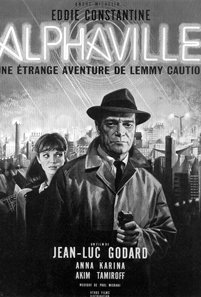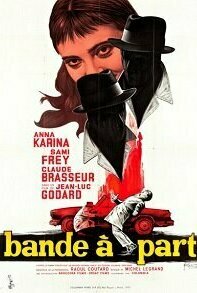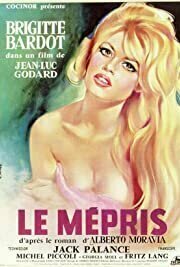Doing Women's Film History: Reframing Cinemas, Past and Future
Christine Gledhill, Julia Knight, Jane Gaines and Monica Dall'Asta
Book
Research into and around women's participation in cinematic history has enjoyed dynamic growth over...

Gerald Laing: A Catalogue Raisonne: 2016
Book
This is a complete, illustrated catalogue of the painting and sculpture of Pop Art pioneer Gerald...
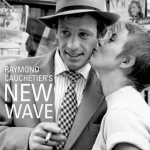
Raymond Cauchetier's New Wave
Raymond Cauchetier, Philippe Garner and James Hyman
Book
In the late 1950s and early 1960s French New Wave cinema exploded onto international screens with...
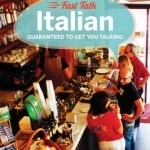
Lonely Planet Fast Talk Italian
Book
Lonely Planet: The world's leading travel guide publisher You can get by in Italy's major cities...
Kirk Bage (1775 KP) rated Alphaville (1965) in Movies
Jan 28, 2021
Eddie Constantine is awful as an actor, but he looks and feels perfect here. And Anna Karina is entirely lovely, oozing intelligent sexuality and seductive vibes in every scene. Not a heroine that needs the man to save her, but a strong and independent woman as much the hero of the story as the trenchcoated lead. Every noir stereotype is adhered to without fail, punctuated with the bizarre and the incongruous whenever possible. Without this film existing there would be so many good things from The Prisoner to Predestination that wouldn’t have been the same. Groundbreaking and charming without even trying. It grows in my imagination as a cult entity by the week – I can’t wait to watch it again fairly soon.
Kirk Bage (1775 KP) rated Band a Part (1964) in Movies
Jan 28, 2021
On the surface it is about two dodgy guys who take a shine to a girl and rope her into a heist. But the most memorable moments are the trivialities of them dancing the Maddison in a cafe because they are bored; reading the news aloud from newspapers whilst sat in the woods; driving erratically in a speedy little jalopy with a broken roof; and just making faces at one another as they flirt and express the bittersweet tediousness of being alive. It epitomises the time and place almost more than A Bout de Souffle, and in my opinion is the more mature, more knowing film. Ultimately it means very little, but is impossible not to like. It also sparked a greater interest in Anna Karina as a film icon, being the 2nd film on this list in which she impressed me.

